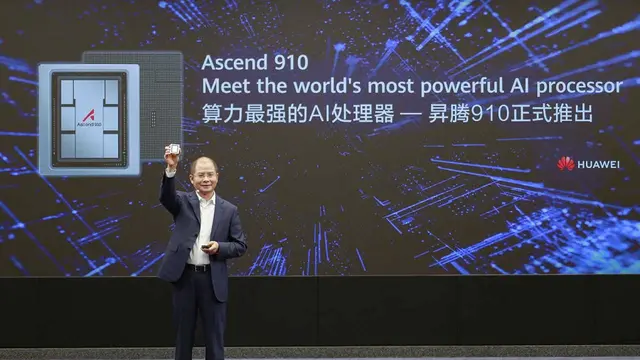Huawei unveiled its new AI chip "Ascend 910" and an open-source AI software framework "MindSpore" on Friday.
The Chinese telecom equipment giant claimed the new chip has "more computing power than any other AI processor in the world."
The bold claim was backed by Huawei's own test showing the chip can deliver 256 TFLOPS of performance for FP16 operations at 310W power consumption.
For a quick comparison, Nvidia's Telsa V100 chip can only deliver 125 TFLOPS at 300W power. Google's TPU v3 is even slower with a number in the two digits.
What's more, Huawei promised that the price for Ascend 910 products will be cheaper than V100-based ones.
Huawei's Ascend 910 AI chip /Picture provided by Huawei
The chip is the company's further expansion into the AI sector and a move to achieve its chip strategy amid the U.S.' intensified crackdown on the Chinese telecommunications giant.
The AI chip market is still young, with big names like Intel competing with startups like Cerebra. Internet giants like Google are getting into the AI hardware accelerator market previously dominated by graphics card makers like Nvidia.
Huawei tapped into the market with the Ascend 310 chip last year. The chip was touted by the World Internet Conference 2018 to be one of the 25 most important achievements in the industry.
According to Eric Xu, the company's rotating chairman, the next-generation chip "Ascend 920" is also under development.
CGTN Digital will be updating this story to tell you more about the MindSpore open-source AI software framework and Huawei's current status under U.S. attack.
(CGTN)
 简体中文
简体中文

